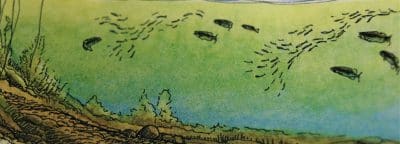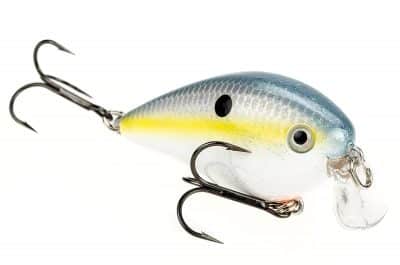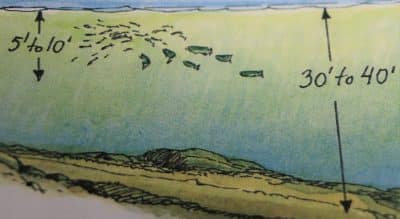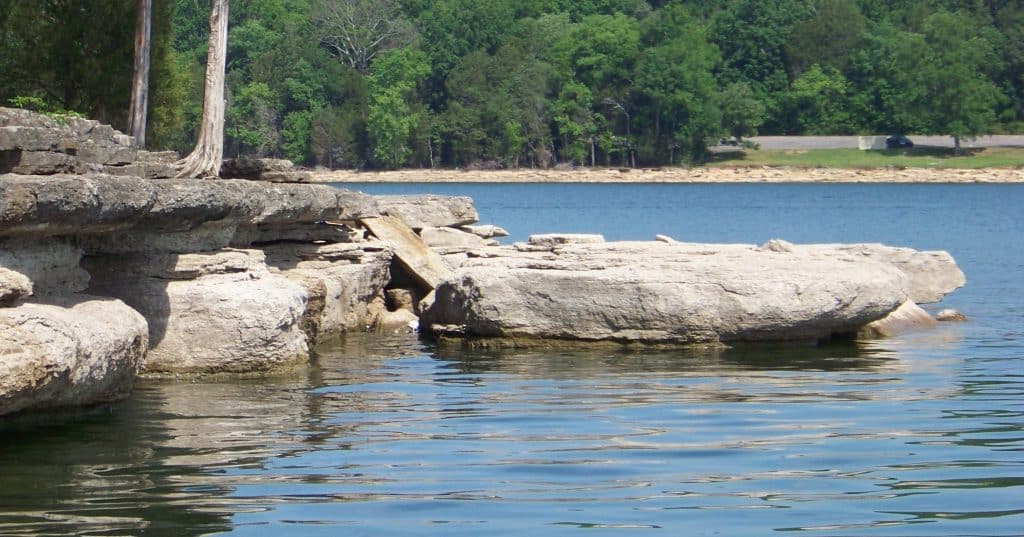It’s long been universally accepted that bass require some vague recovery period. Post-Spawn fishing has long been filled with uncooperative bass. They do everything they possibly can to avoid being caught. While catching the occasional fish is better than working I like to optimize my time on the water. With a few tips post spawn bass fishing doesn’t have to be slow.
Post Spawn Bass Fishing Tips
I have to start out with a disclaimer: if you’re the type of person who needs guaranteed results you might as well skip the post spawn season. There’s no guaranteed formula for catching bass after the spawn so you’d be better off doing some work at home. If you’re out for the joy of fishing, you might just find that monster bass you’ve been waiting for. As a general rule fish are going to be wherever the baitfish are. Finding them is easier said than done, but there’s a few locations you should check first.
Timing The Spawn
In most parts of the country the post-spawn period will occur in a four week period from mid-april to mid-may. Up in the far north this window can be pushed back somewhat. It can go as late as mid-may to the middle of june. Most bass will start to spawn when water temperatures reach between 61-62 degrees. This isn’t guaranteed, so make sure you check weather patterns. High water will significantly delay all phases of the spawn. However recognizing the spawning period isn’t rocket science. If the shallows are less populated with bass or filled with fry guarded by small males, the spawn is over.
Start in Shallow Water
As far as I’m concerned the negativity surrounding post-spawn fishing is absolute bunk. While the opportunities might not present themselves like the spawning frenzy, your numbers don’t have to disappoint. This is the one time of year that it really pays to be an early riser. Early morning is key, I like to hustle and cover a ton of water with a spinnerbait or topwater lure. Make sure you look for areas with fish and patterns that are working. Try and move fast, because around 8 or 9 you’ll have to hunker down and try some different things.
At first light start by checking the pockets with a topwater lure. Anything that runs near the surface should work, but I really like the Rebel Pop-R Fishing Lure. There’s a ton of different color options that should suit all your needs. You’ll usually run into all different sizes of fish in the morning. You might catch ten 3 pounders before you hook a really big one. They’re all running together wherever they can find baitfish.
From the pockets you’re going to want to move out to a nearby point and throw a Carolina rig or whatever else you want to use. The beauty of postspawn fishing is that you can effectively use just about any lure in your tackle box. Whether it’s spinnerbaits, crankbaits, topwaters or floating worms, if you stick with your strengths you’ll catch fish. The topwater bite won’t last long and anyone that isn’t out by 5:30-6am should look elsewhere. Shad will usually move near the docks early to feed, but they won’t last long. By midmorning you’ll have to look for bass away from the shoreline.
Follow The Funnel
Bass will routinely follow the same routes like funnels. Most of the time they’ll use the same way out that they came in. If you can figure out their route you can follow it back out. Check for access points because that’s where you’ll most likely find bass. Look for the first main lake entry point with deep water close by. Don’t by into the idea that post-spawn bass have moved to their deeper summer locations. There’s some truth behind this, but it’s mostly untrue. Bass move from their shallow spawning location to deeper summer areas, but they’ll stay near shallow cover. In this transitional mode they’ll still be in relative proximity to shallow structure and cover.
For naysayers, this may seem like bad news. After all, if bass are staying over deep water, doesn’t that make them harder to catch? The problem with this thinking as that most bass caught with topwater lures are suspended fish. After the spawn these bass like to stay fairly close to the surface so they can feed.
Check Water Clarity
Water clarity is yet another thing you need to consider. In clear water fisheries, you’re going to have to follow the funnel out into deeper water. Clear water makes fish feel less comfortable near the surface, so they’ll be near deeper cover. In clearwater lakes you’ll find bass suspended near long tapering points sticking out into the main lake.
Track The Forage
Your post-spawn bites will always be linked to the amount of shad in any given fishery. In lakes with a ton of shad bass will most likely suspend more. Lakes that don’t have as much baitfish bass will move up to other available food. Most of the time they’ll look for bluegill if shad is readily available. Knowing the amount and type of baitfish in the waterway is crucial to your success. Shad and bluegill spawn just after bass making their presence crucial for patterning. Making sure baits present is key to successful fishing. This is especially important, because spawning bait are less spread out than at other times of year.
You can catch suspended bass on topwater lures, but you need to make sure there’s other bait around. Crankbaits are typically the way to go with these fish. I prefer the Strike King KVD 1.5 lure in one of the lighter colors. It plows through cover in shallow weeds making it perfect near the shallows. Try and cover the water column without lingering. You’ll be able to quickly tell if bass are present.
Adjust to Your Surroundings
Your approach needs to be truly multidimensional. After the spawn fish quickly transition into their summer resting spots. It’s very easy to get hooked into staying in the shallows to long. Clinging to the shallows could mean you miss the best postspawn bite. Even with a meticulous game plan it can be hard to figure out the pattern. If a weather front isn’t responsible for the change it could just be timing. Just like the shallow flurries in the morning, activity levels will change throughout the day. You’ll have to figure out where the bass are biting and maybe check back to areas that weren’t biting earlier in the day.
Catching Post-Spawn Smallmouth Bass
Catching smallies will be a little different than with their largemouth brothers. With smallmouths the post-spawn lull is an absolute myth. I’ve found fishing from mid-may to mid-june is one of the best times to catch smallmouths. After the spawn smallmouths like to congregate over long tapering points near their spawning areas. These are the best places for them to forage on 2-3 inch long baitfish. They like to suspend down 5 to 10 feet in water as deep as 40 feet. The beauty of this fishing tactic is that smallies stay as long as the baitfish will. You’ll be able to successfully fish the same spot late into July.

